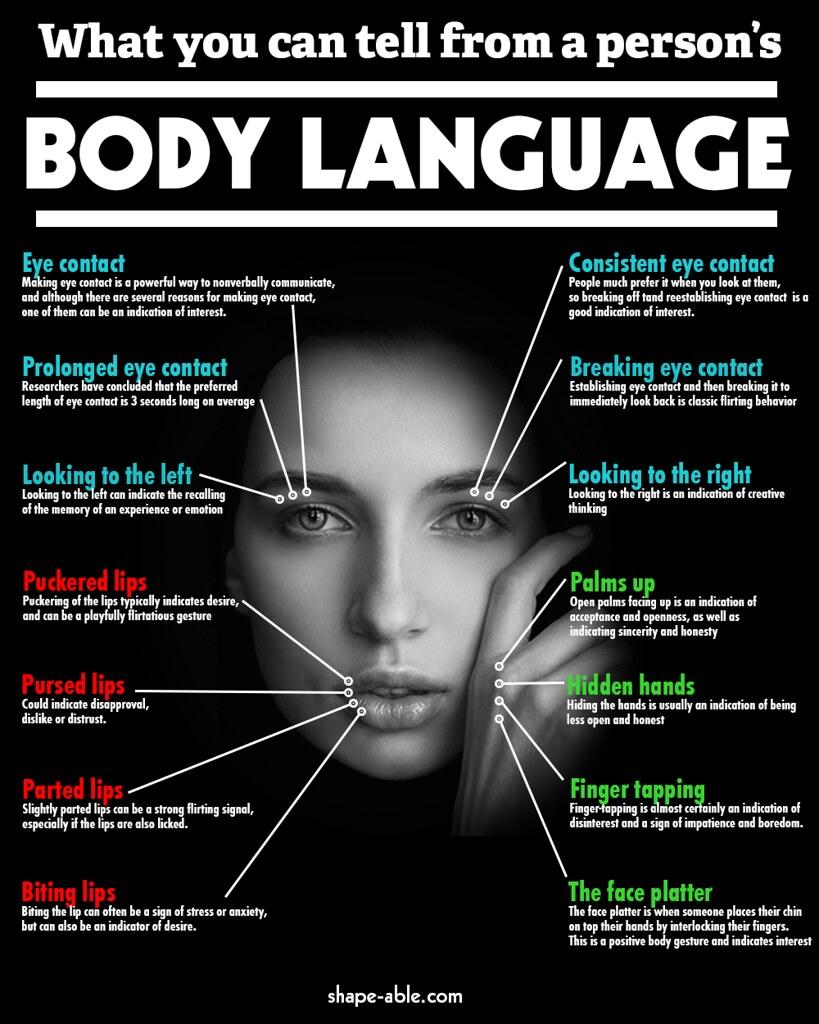
Listening to Your Body’s Language During Sexual Encounters
Ever felt your body sending signals during intimate moments? That’s your body’s language speaking up. Listening to what your body is telling you during sexual encounters is crucial for a pleasurable experience. From recognizing physical cues to understanding emotional responses, tuning into your body’s language can enhance intimacy and connection between partners. Let’s explore how to decode what your body is trying to communicate in the heat of the moment.
1. Understanding the Importance of Body Language in Intimacy
In the dance of intimacy, it’s not just about the words said; it’s also about what remains silent but potent – the body language. Recognizing and interpreting these signs can greatly influence the dynamics of a sexual encounter. It brings forth an element of sync, an awareness that feeds into the interaction, bolstering its enjoyment and intensity.
Body language – the secret signal transmitter – speaks volumes about a person’s comfort, desire, and preferences. The tilt of a head, a brush of skin, a certain tension in the muscles; all these are forms of communicating that need no words. Pay attention to these hidden layers of expression; they shape the experience and pave the way for a more connected and fulfilling intimacy.
Understanding the relevance of body language in intimate settings presents a way to tap into unspoken trajectories of desire. It’s like learning a new dialect; with patience and practice, you can start hearing the silent tale, becoming more attuned to your partner and fostering a heightened sense of intimacy. It enhances the capacity to interact with fluency in the nuanced language of pleasure.
2. Decoding the Subtle Cues: Body Language During Sexual Encounters
In the greatness of a passionate moment, an array of unspoken cues comes into play. This seemingly complex language actually follows its own natural syntax – dictated both by shared human instinct, and individual psychology. Knowing how to read these signals can add depth and meaning to your intimate encounters.
Let’s delve into some common cues observed in the body language during intimate encounters. The consistency of eye contact can speak volumes. A break in eye contact often reveals inner discomfort, distraction, or confusion, whereas sustained, engaged eye contact usually signals mutual connections and understanding.
Touch and Proximity is another area of interest. In intimate situations, drawing closer or touching frequently implies comfort, whereas creating distance might hint towards uneasiness. Pace and Rhythm of the encounter can also function as a scoreboard; An accelerated pace could hint at excessive excitement or agitation, whereas a slower pace may imply a relaxed or contemplative state.
Every action, gesture, or change in your partner’s body postures carries a trove of information, waiting to be unearthed with observance and understanding. Start paying attention to these subtle clues for a more profound and connected experience.
3. How to Improve Your Sensitivity to Your Partner’s Non-Verbal Signals
In the dance of intimacy, much of the conversation happens beyond spoken words. Becoming attuned to your partner’s unspoken cues is key to enhancing your sexual relationship. But how can we intensify our awareness to these non-verbal signals?
Foremost, it involves “active observation.” Unlike casual watching, this entails interpreting what you see and connecting it to your partner’s possible emotions or thoughts. By spending more time observing your partner in non-sexual settings, you develop an eye for their unique non-verbal communication style. Once familiar with their everyday signals, it will be easier to pick up on subtle changes during intimate moments.
Practicing empathy is also essential. Try to put yourself in your partner’s shoes to understand what they might be feeling. This emotional insight will enable you to respond to their needs more delicately, thus fostering meaningful and satisfying encounters. It’s also vital to maintain a non-judgmental attitude when doing so. We all have different ways of expressing our desires or discomforts. Time, patience, and respect will strengthen your capacity to read your partner’s non-verbal cues.
With these insights in mind, intimacy can transform into a deeper, non-verbal dialogue between you and your partner, enhancing the bond you share on levels far beyond words.
4. The Role of Emotional Intelligence in Interpreting Body’s Language
Emotional intelligence (EQ) plays a vital role in understanding and responding to one’s own and others’ bodily signals during intimate moments. It can significantly enhance the quality of sexual experiences as it supports reciprocation, empathy, and sensitive observance of nonverbal cues. Being emotionally intelligent means not just ‘hearing’ but ‘understanding’ the silent dialogue your body and your partner’s body is having.
EQ widens our perspective, allowing us to pick up subtle shades of expression and hidden meanings in body language. For instance, certain movements may represent discomfort, while others might hint at unspoken desires. Being attuned to these signals allows for adjustments that can intensify connection and pleasure.
- A high EQ can lead to heightened empathy, transforming the intimate encounter into an experience that resonates deeply, ensuring mutual satisfaction.
- A medium EQ encourages self-awareness, which aids in recognizing one’s own bodily reactions, enhancing self-pleasure and confidence in intimate settings.
- A minimal EQ may require active learning and practice, allowing one to progressively understand and respond to their body’s language and their partner’s signals, thus starting a journey towards more fulfilling intimate experiences.
Remember, understanding body language is just half the battle. Responding appropriately is what makes the difference. And that’s where emotional intelligence truly shines.
5. Effective Strategies to Blissful Intimacy: Mindfully Responding to Your Body’s Signals
Just as our tongues grasp for the right words, our bodies are in a constant dialogue of their own during intimate encounters. Understanding this silent language can mean the difference between dull and delightful experiences; between confusion and clarity. Your skin tingles, your heart races, you feel warmth flooding through – these are not random, they’re your body’s messages, your ‘sexual Morse code’. Paying heed can lead you to a heightened sense of intimacy.
A good place to start is by being an active listener to your physical sensations. Pausing and paying attention, rather than persisting despite discomfort or confusion, can help decode your body’s silent messages. If something feels uncomfortable, don’t ignore it. Your feelings of discomfort are a valid response. Likewise, when something feels good, take a mental note and try to recreate those conditions next time.
Embracing mindfulness can facilitate this awareness. Focus on moment-to-moment experiences, on sensations and emotions, without judgment. Regular practice can enhance your sensitivity to your body, improving your ability to respond to signals in intimate situations. Use these signals to guide your actions and decisions, transforming your intimacy into a dialogue – a cooperative dance, rather than a solo performance.
Q&A
Q&A
- I find it difficult to understand my body’s signals during sexual encounters. Any advice?
- How can I communicate my body’s language to my partner?
- What does it mean by “listening to your body’s language” in a sexual context?
- Is it possible that my body’s signals could be misinterpreted by my partner?
- Can alcohol or drugs affect my ability to listen to my body’s language during sexual encounters?
- What steps can I take to better understand my body’s language in sexual encounters?
A great starting point is learning to tune into your body’s responses outside of a sexual context. Practice mindfulness and body awareness. Eventually, it will spill over into your sexual encounters.
Open and honest communication is key. Discuss your feelings, comfort levels, and understanding of your body’s signals with your partner often.
It refers to paying attention to your body’s physical and emotional reactions during sexual encounters.
It’s possible, and that’s why along with body language, verbal communication is also very important.
Yes, substances like alcohol and drugs can interfere with your body’s natural responses and make it difficult to accurately read your body’s signals.
Engage in self-reflection, seek professional help or read educational material on bodily awareness and sexual health.
Wrapping Up
In conclusion, mindful attention towards your body’s language during sexual encounters can significantly enhance your sexual experiences and overall intimacy. By being aware and attuned to the signals being sent by your body, not only can you increase your satisfaction and pleasure, but also safeguard your health and consent. It is high time we shush the societal norms and start cherishing the concept of listening to our body’s language. So, the next time you’re in the heat of the moment, don’t mute the voice of your body, tune in—and you just might be surprised at what you hear.
References:
-
Bader, Michael J. “Sexual Health: Listening to Your Body’s Warnings.” Psychology Today, December 1, 2012. Accessed February 28, 2022. https://www.psychologytoday.com/
-
Tuckman, Bruce W. “Understanding Your Physical and Emotional Responses to Sex.” The Ohio State University, July 3, 2014. Accessed February 28, 2022. https://www.osu.edu/
-
Schneiderman, Jill. “The Importance of Listening to Your Body.” HuffPost, September 26, 2011. Accessed February 28, 2022. https://www.huffpost.com/
-
Rowland, David L., and Serefoglu, Ege Can. “Defining and Measuring Sexual Response.” Journal of Sexual Medicine, January 23, 2018. Accessed February 28, 2022. https://www.jsm.jsexmed.org/
-
“Understanding the Body’s Sexual Response.” Planned Parenthood, n.d. Accessed February 28, 2022. https://www.plannedparenthood.org/.






